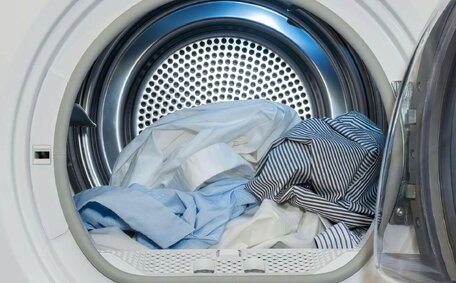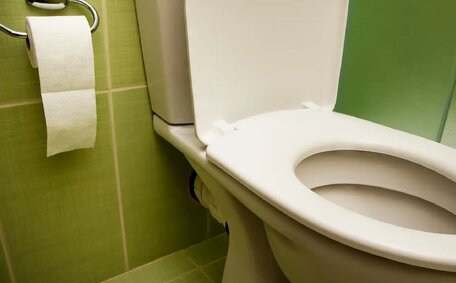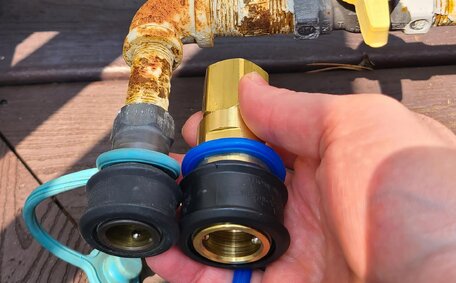Understanding the dangers of gas leaks
The volatility of natural gas is underscored by catastrophic events such as the Paris tragedy and the East Harlem explosion, demonstrating the serious risks of gas leaks.
Natural gas is highly flammable, and a single spark can ignite a leak, causing devastating fires or explosions. The American Academy of Paediatrics reports that numerous injuries and fatalities occur annually in the United States from natural gas-related incidents.
Inhalation of natural gas from a leak is extremely dangerous and, depending on the gas concentration, could lead to an explosion. Inhaled gases such as methane and carbon monoxide, being denser than air, displace oxygen, potentially leading to asphyxiation, brain damage, or death.
Understanding gas leak safety protocols, such as the need for immediate evacuation and seeking medical attention for symptoms like dizziness, nausea, or unconsciousness, is crucial.
Domestic gas leaks are commonly found in homes but can happen wherever gas pipes or appliances are present. Explosive incidents and resulting injuries can stem from issues like defective materials, substandard construction, ground movement, and corrosion, This is especially true when gas pipelines are affected by activities such as digging or demolition. Over time, even a minor leak could cause a dangerous gas buildup inside structures that may spark fire from a single instance of static electricity or use of electrical devices.
Implementing precautions such as having inspections regularly conducted on gas pipes, installing gas detectors and teaching household members how to respond to a gas leak in your home can help mitigate the risks gas leaks can pose. Due to the inherent dangers, immediate evacuation and contacting the gas company or emergency services upon detecting a leak is imperative.
What causes gas leaks in homes?
There are multiple potential causes for a gas leak that could affect your property:
- Faulty or impaired appliances such as water heater units, gas hot water systems, stoves, and dryers may develop fissures that lead to a leak natural gas.
- Gas supply lines or internal pipes that had been incorrectly installed or sustained damage can develop leaks.
- Corrosion over time can cause minuscule openings that might permit a leak in your natural gas pipeline.
- Methane, a primary component of a gas leak in natural gas, from landfill or agricultural sites can seep through the ground into residences.
- Poor ventilation around your appliances can cause gas build up.
- Human error during gas line repairs or installation can lead to improper connections.
Natural gas, being colourless and odourless, has a distinct 'rotten egg’ odour added during processing as a safety measure, drawing on lessons learned from incidents like the New London explosion. Installers also add mercaptan odorant after gas is processed for propane and butane tanks commonly used for barbecues, portable stoves and vehicles.
Detecting gas via its distinctive odour is crucial for early leak detection to avert danger.
How to detect a gas leak
A number of important steps can provide a thorough response to a suspected gas leak at your home or business:
- Smell - Natural gas companies infuse the gas with a rotten egg smell so that leaks can be more readily detected by their distinct scent. Trust your sense of smell; even a faint trace of that distinctive 'rotten egg’ odour could pinpoint a gas leak.
- Sound - Listen for an unusual hissing noise near gas appliances or pipes as that may indicate escaping gas.
- Sight - Look for visible signs that there may be a gas leak, like dirt spraying from a pipeline, dead plants over underground gas lines, or bubbling puddles which can occur with gas leaks.
- Devices - Investing in natural gas detectors and carbon monoxide alarms provides an added layer of protection, This provides a fortified defence against all gas-related dangers, especially while you are sleeping or away from your dwelling. Gas detection systems serve as crucial warnings, alerting individuals to hazardous gas buildups before they become life-threatening.
Trusting multiple senses, maintaining vigilance over time and installing proper detectors increases your chances of noticing leaks early, especially if there gas leak occurs in your environment. Detecting a leak promptly allows for quick shut-off of gas valves, immediate evacuation from harmful fumes, and swift contact with emergency services – significantly reducing the risk of fire, explosion, and poisoning.
Health effects of gas leak exposure
Exposure to leaking natural gas or LPG can severely impact human health. Inhaling the gases displace oxygen levels in the bloodstream and lungs, causing dangerous drops in blood oxygen concentration.
Carbon monoxide and other noxious gases may trigger symptoms ranging from headaches and nausea to severe reactions like convulsions, coma, and even death. Chronic low-level exposure may lead to neurological and cardiovascular damage over time.
The health effects of inhaling leaking gas are similar to those from carbon monoxide poisoning. Symptoms like confusion, weakness, chest pain and trouble breathing should be treated as medical emergencies. Seek fresh air and immediate medical care if you or others experience any concerning symptoms after exposure to natural gas.
Gas leaks can rapidly displace breathable oxygen, leading to possible unconsciousness and asphyxiation, and in some cases, may result in explosions. Extreme caution is vital during evacuation from indoor gas leaks, as high gas concentrations can quickly overwhelm individuals, resulting in fires or explosions. Instead of attempting rescue efforts alone, it’s critical to immediately call local fire and emergency services.
What to do if you suspect a leak
If you detect the signs of a potential gas leak, follow these steps immediately:
- Evacuate everyone from the area, opening all doors and windows as you leave to promote ventilation.
- Avoid any actions that could cause a spark and ignite the leaking gas, such as flipping switches. Do not smoke, turn electrical devices or lights on/off, use phones, or operate any vehicles or equipment.
- From a safe location and after ensuring all electrical appliances are off, call 000 to inform emergency services and your gas provider of the situation.
- If it is safe to do so and you have access, turn off the main gas valve. Move carefully avoiding open flames or sparks if attempting this.
- Do not re-enter the premises until emergency services declare it safe to do so.
- Contact our team at Ryde Plumbing Services on 1300 349 338 or email us at jobs@rydeplumbingservices.com.au for emergency plumbing assistance.
It’s critical not to ignore or underestimate gas leaks. When you detect a gas leak, evacuation and immediate emergency contact can greatly reduce risks of fire, explosion and poisoning.
Preventing gas leaks and explosions
There are several key ways to help prevent dangerous gas leaks and potential explosions in homes and businesses that use natural gas:
Conduct Regular Inspections
Ensure gas systems are annually inspected by qualified technicians to maintain safety. Qualified technicians should thoroughly check appliances, pipelines, and ventilation systems to spot and fix any faults like defective fittings, helping to prevent leaks. Seek the expertise of licensed gas fitters, such as our team at Ryde Plumbing Services, for dependable inspections.
Proper Installation & Maintenance
Always engage licensed professionals for installing new gas appliances or pipes, ensuring all elements conform to stringent safety standards for your safety. Arrange for regular servicing of equipment by qualified technicians to ensure optimal operation and to identify potential leak risks early.
Install Gas Detectors
Consider investing in natural gas and carbon monoxide detectors (installed to manufacturer specifications) even if you don’t have gas appliances. Early alerts to any form of gas buildup can be a lifesaving measure.
Learn Leak Prevention & Response
Ensure every household member is aware of important gas safety tips to recognise the signs of a gas leak in your property, as he says when discussing natural gas safety, noting the crucial safety actions to take and keeping our emergency contact details within easy reach. A quick and well-informed response can significantly lessen the dangers should a leak occur.
Staying proactive on gas safety provides assurance that your risk of leaks, explosions and secondary hazards like poisoning or fires remains minimal. If you have any concerns regarding your gas systems, please don’t hesitate to contact us.






